Exclusive Will Leitch interview
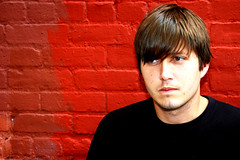

Will Leitch has had many incarnations as a writer, from his Life as a Loser column to annual major league baseball previews at The Black Table to exposing focus group opportunities to his recent position as editor of Gawker Media’s sports blog, Deadspin. But now Leitch has made a leap into a new arena with his debut novel, Catch, published last week by Penguin’s young adult imprint Razorbill.
Full disclosure here: I’m Will’s friend, and a fan of his work. I introduced him to his girlfriend. This is my blog. But putting all that aside, I have to say that I was totally moved by Catch, especially because it centers around sports, a subject I know next to nothing about. I’d been told by a mutual friend that it was a “baseball novel,” which at first left me nonplussed, fearing that it would be all about the minutiae of the game (and just as tedious). But I was pleasantly surprised to find that in Catch, baseball is a metaphor and litmus test for fitting in, and is the medium Leitch uses to portray one young man simultaneously outgrowing his family and surroundings while still staying intimately connected with them.
Set in Leitch’s hometown of Mattoon, Illinois, Catch tells the story of Tim Timples, who grows up in the shadow of his older brother, the now-fallen sports star, and is fumbling to figure out who he is, where he belongs, and, of course, something he’ll probably be grappling with for a long time—girls. Leitch’s writing is simple but never simplistic, capturing family drama, heartache, and emotional nuances that follow all of us well into adulthood. As Tim embarks on an affair with an older woman, Helena, and learns to see the bigger world around him, he also comes to appreciate those closest to him as he steps into his new role as an adult. Accessible and relevant to both teens and adults, Catch shows Leitch making a promising leap into the fiction world, and I’m sure I’m not the only one who hopes that there are more novels in his future.
by Rachel Kramer Bussel
Your first novel, Catch
Well, it has been a long time since I lived in Mattoon, and the town has changed a ton since I lived there, mostly for the worst, mostly because of Wal-Mart. I know it’s cool to rip Wal-Mart right now, but, honestly, Wal-Mart is destroying small towns like Mattoon. When I lived in Mattoon, the downtown area really had that charm that we think of small towns having. The movie theater had three screens, and it was just around the corner from the sporting goods store, the place where you rented your suit for the prom and the burger joint where all the kids milled around the parking lot. But once Wal-Mart opened its mammoth atrocity – the biggest building in Mattoon, by about four times – right by the Interstate, almost all the businesses closed down within a year, some of them so fast that their signs are still hanging there, outside an abandoned building -- literally making it a ghost town. It sucked much of the character and life out of my town; the whole city feels like it’s under dead fluorescent light now.
So yeah, a large part of the book is set in the Mattoon I remember, the way I wish it still were. Bagelfest still goes on every year, but what used to be this cute, charming celebration now is crass and ugly. I didn’t even know this until after I wrote the book. I called my parents and asked about coming back for Bagelfest this year. They said not to bother; none of the locals actually go to Bagelfest anymore. It made me very sad.
In a way, the book is a chronicle of what life in a small town used to be like, and the way it can be again. Much of the best parts of living in a small town are still there: Everybody knows you, everybody takes care of each other, everyone lives in an atmosphere conducive to being a good person. But the Mattoon in the book: That’s the place I once lived – or at least the place I remember living in – and that’s what I miss. Plus, it’s a great place to set a book. Mattoon is as much a character in the book as the people are. I feel that’s important.
How much, if any, of the story is autobiographical? Not necessarily in the plot points, but there are emotional moments that seem to come straight from the heart—I’m thinking especially of Tim’s very stark portrayal of a mix of feelings he reveals near the end, where you write, “I wonder if I have made anyone else feel like this. I wonder if someone’s guts rose into their chest when I kissed them, I wonder if they felt that I was their one, I wonder if my apathy sent them to their own dams.” This might be too personal for The Black Table, but that seemed to be one of the passages that elevates Catch to the universal level, and perhaps Tim even shows more insight than the average 18-year-old would have.
Well, I obviously can only draw from my own brain, and I think, yes, some of those are universal thoughts. But other than the setting and the occupation of Tim’s mother, it’s not particularly autobiographical. I can only wish I were as cool as Tim was in high school. Since I’ve written so much first-person stuff in the past, I’m sure people will see Tim as my proxy, but he isn’t. He’s a confused kid hitting that point in his life when, for the first time, what he does actually matters. That can be a lot to deal with, and that’s something everyone has been faced with.
And I’m not sure that’s not a sentiment that an 18-year-old wouldn’t have; everyone in high school has had their ass kicked in one way or another, and Tim is forced to step back and realize that the pain he’s feeling is one that he, most likely, has caused others as well.
Even though Tim is the protagonist and the story’s told from his point of view, you manage to make the other characters unique and vibrant. One of my favorite parts is when Helena is telling him about Liz Phair’s album Exile in Guyville and says, “It’s so sad. It’s about all the terrible things she had been through. I feel like sometimes she broke into my brain and stole everything I ever thought.” You perfectly capture the way people identify with their favorite artists, while also highlighting Helena’s differences from Tim. You managed to make Helena not seen just through Tim’s eyes, but a whole person. Was it any more difficult to write Helena than Tim? Did any characters give you more trouble than any others?
I love Helena. She really turned out to be one of my very favorite characters; I’m actually proud to have created her. In many ways, the book is about her as much – if not more – than it’s about Tim. She goes through her own changes and fights her own battles. That was a bit of a surprise; she just kept evolving as I kept writing, to the point that her scenes were the most fun to write. I almost want to write a whole book just about her. Maybe I will.
The character who gave me the most trouble was Jessica, basically because when I originally came up with her, she was very dull. She was too goody-goody, too much of an obvious contrast with Helena. I worked hard to give her her own life, and ultimately, I think I succeeded somewhat. She’s someone who has her own crosses to bear, but, unlike Tim, she doesn’t agonize over them and doesn’t pussy-foot around. She has as much to lose in leaving Mattoon as Tim does, but she has made her decision and is willing to ride it out to the end. I guarantee you I would have had a crush on Jessica in high school.
If I could do it differently, though? I would change Tim’s first name. I kept finding myself typing the word “Time.” And that’s very Tim-consuming.
There’s a culture clash when Tim goes to visit a college and sees how much Mattoon doesn’t have, which is a turning point, almost as if he hadn’t realized where he was from wasn’t necessarily the same as everywhere else until he traveled outside it. For both Tim and yourself, what’s been the hardest part of adjusting from small town to big city life? Does one ever fully make the jump? Do you consider yourself a New Yorker now, a Midwesterner living in New York, or some combination of the two?
(SPOILER ALERT) I don’t know what happens to Tim once he gets out of Mattoon, though if I had to guess, I bet he screws up a lot and keeps retreating home for comfort before returning back out into the real world. I’m curious about Tim, though; I’d love to meet him when he’s 30. I hope he’s a good guy. I think he is.
As for myself, the hardest part is never forgetting that Mattoon is where I came from. I’ve used this analogy before, but a friend once said that I live life in New York like I’m residing in a permanent Midwest embassy. I like that. I want people to know where I’m from; I’m honored to be from Mattoon, and have the family and loyal friends I’ve had. I’ve lived in New York for six years now, and there’s not a day I don’t feel lucky to be here. I’ve personally never left the United States before (I don’t even have a passport). I recognize that this is dumb, and I hope to rectify that soon. But the sentiment comes from a good place: Honestly, I feel like it was hard enough for me to get to New York. I feel like I’m in a foreign country every day. I like that. Even as this place feels more and more like home.
How long did the book take you to write and what was the most challenging part of the process? Did you start with an outline, and if so, did anything change from how you’d originally conceived it?
The whole process took about seven months, though the writing part, surprisingly, was not the yeoman’s share of the work. My editor Kristen Pettit was incredibly helpful, and believe me, all that help was needed: I was (and am) a complete amateur at this whole process. She guided me every step of the way. I had a rough outline that I worked on with her; this book is just as much a credit to her as it is to me.
Do you have plans for future novels?
Yep, I’m working on one right now, actually. I’m way behind on it, which I think it’s the way it’s supposed to be. Eventually, someone’s just going to give me a hard deadline, and I’ll meet it, because I’ve been in journalism long enough to know that if you miss a deadline an editor gives you, they get very angry. You wouldn’t like an editor when they’re angry.
You’re now running the Growth Spurt reading series the first Wednesday of every month at Happy Ending Lounge. Since it’s a bar, most of the crowd seems to be above the usual YA age group. Do you think adults have anything to gain from reading young adult fiction or will it only really have meaning for teenagers?
We’ve had excellent turnout at all the readings so far, and I couldn’t be happier. I’m firm in my belief that YA books are just books with younger characters. The labeling process the book industry insists upon confounds me. Good books are good books.
You’re now the editor of Deadspin. Gawker Media’s sports blog. How’d you get the job, and what’s your induction into the world of professional blogging been like?
Well, basically, I pitched my vision for how a site might work for them, and they went with it. It has been tremendously enjoyable; it’s a lot of work, but it’s not real work, like lifting things or giving people shots. The weird thing about doing this is that before doing Deadspin, I had never done a blog before. The first time I ever did a blog, I did it professionally (which is the only way I could have done it, really). I’ve tried to reach out to sports bloggers who have been doing it longer than I have, and with just a few exceptions, they’ve been very receptive and helpful. I’m having a great time. If Gawker Media has anything, they have an impeccable eye for spotting talent, so I’m continuously flattered they’d want to work with me.
A sports etiquette question—if there’s a party and the host doesn’t want the TV on, but you’re dying to know the latest game’s score and don’t have a Blackberry or other electronic device handy, what should you do?
Well, you should leave. You probably shouldn’t have gone to the party in the first place, if the game were that important. Whenever you see my girlfriend out at a party that I’m not at, this is almost certainly the reason.
You’ve written a long-running first-person, confessional column, Life as a Loser
It’s all the same part: The typing part. That’s really all I know how to do: Type fast.
My favorite thing to do is to write my weekly fantasy football newsletter for the league I run; it has been known to hit 2,500 words. And it’s just for me and the other 13 people in the league, most of which are old friends who live out of town and I don’t get to see much of anymore. I probably put as much energy into that as I do anything. It’s just kind of my natural state of being; I feel a lot more comfortable typing that I do just about anything else. Typing is the only high school class I had that I ever use anymore.
But that’s all it is: Typing.
Do you have any advice for writers, young or not so young, starting out now? Anything you’ve learned the hard way or figured out through trial and error?
Just write all the freaking time, for anyone who will have you. Don’t worry about getting paid, or getting your stuff in the right place, or anything like that. Just write like crazy, anywhere and everywhere that will have you. Get enough of that stuff out there, if you’re good, people will notice. They’ll have to.
Catch is now available for purchase at Amazon.com














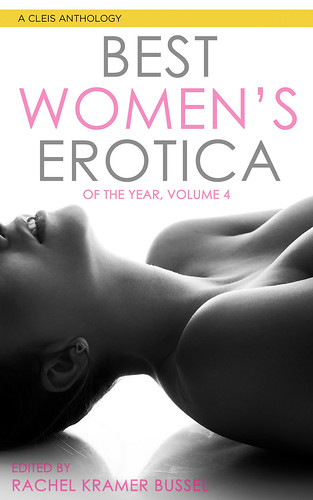
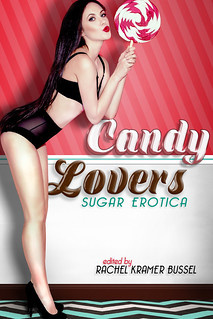
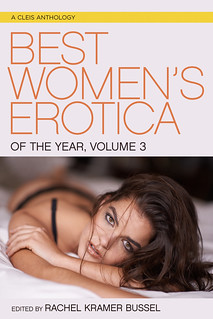
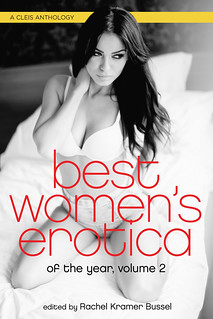
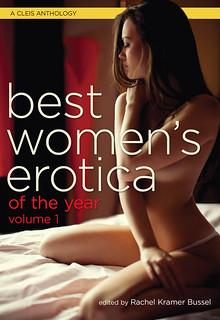
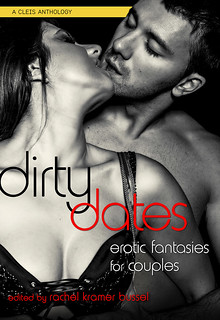

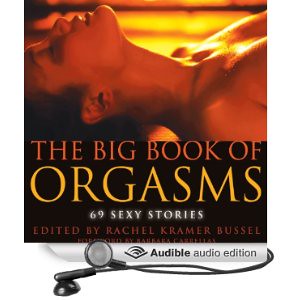
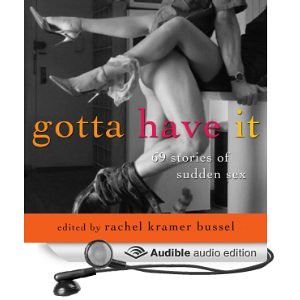
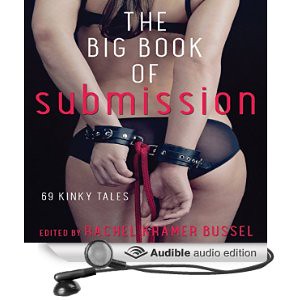 The Big Book of Submission: 69 Kinky Tales
The Big Book of Submission: 69 Kinky Tales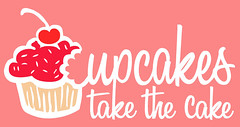
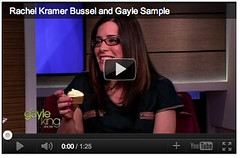

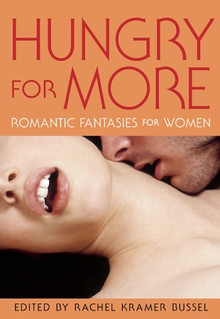
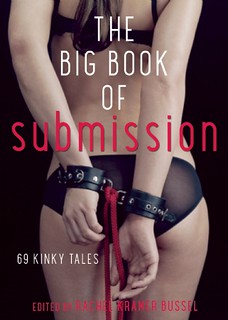
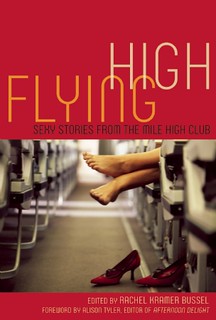 Flying High: Sexy Stories from the Mile High Club
Flying High: Sexy Stories from the Mile High Club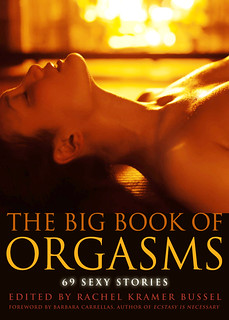
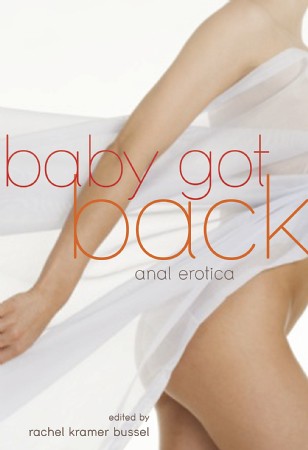

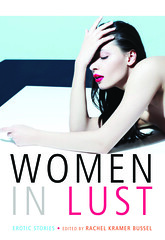






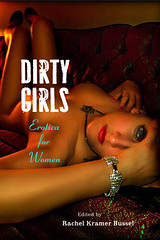






0 Comments:
Post a Comment
<< Home